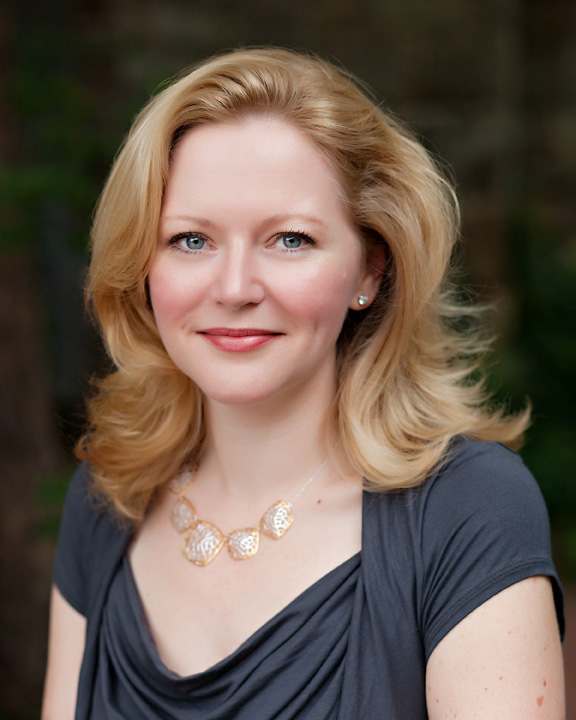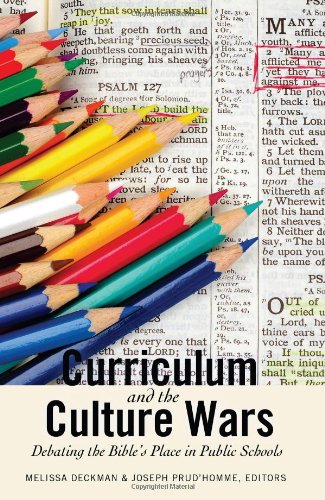Dr. Melissa Deckman is a Professor of Political Science at Washington College and a PRRI Affiliated Scholar. Her research interests center on the intersection of religion, women, and politics. She has written in the past about the Christian Right’s participation in school board politics. Her most recent work is as co-editor and contributor to Curriculum and the Culture Wars: Debating the Bible’s Place in Public Schools. PRRI sat down with Dr. Deckman to discuss the significance of the book.
How does your new book address the cultural wars?
I was inspired to put together this volume by watching a trend in some state legislatures to promote courses in public schools that teach he Bible as an elective course, essentially. I noticed that this was happening more frequently in Southern states and I wanted to explore the politics behind this initiative. I was also inspired to write the book because I’d been reading a pretty well known book by Stephen Prothero, Religious Literacy. He documents in that book how little Americans know not just about Christianity, but about religion more generally. Given the important role that religion plays in our culture, in our politics, in our history, in our literature—in all aspects of life—I thought it was interesting to look at this elective Bible study movement that was occurring alongside scholarship that tells us that Americans really know so little about religion. I set about to uncover what these elective courses were trying to do, who was promoting them, and what was their aim. The book then blossomed into a larger project, in which my co-editor Joseph Prud’homme and I considered current debates about how religion intersects with other areas of curriculum. In addition to looking at the politics behind Biblical elective courses, we also consider the latest public opinion data on the evolution/creationism debate, for example. Our book also has a chapter on sex education and the debate between abstinence-only and more comprehensive sex education programs. We also have a chapter on whether or not private religious schools promote tolerance.
What do you think is the most interesting finding of this book?
What I found interesting in looking at this trend of the Bible as an elective course is at the end of the day, these classes are not necessarily that popular. As of now, six Southern legislatures have passed laws that promote the idea of public schools having these courses as electives. They don’t necessarily require them, but they promote them. Recent research suggests, however, that there isn’t necessarily a lot of students interested in taking these classes. So I think sometimes these are ideas that may be brought about by the passions of conservative Christian activists, generally speaking, but, in reality, in the public schools today the promotion of Bible classes is perhaps falling on deaf ears. I remember in Georgia a superintendent from one of the county schools was saying, “Well, we’re offering these courses but students aren’t taking them; they’d rather have SAT-prep courses.” So, despite an organized effort to pass such legislation—which I note have been passed overwhelmingly by legislators in both parties—there may be little public demand for these courses. Which is a whole different concept aside from the politics behind it, and whether theses classes are a good idea from a normative perspective and whether they’re constitutionally sound.
Have there been any similar pushes to study religious texts from other traditions, to study the Torah, to study the Quran, etc.?
Absolutely. One of the chapters we include in the book is from Diane Moore. She’s a professor at Harvard Divinity School, and she led a taskforce in 2010 that essentially came up with a religious studies framework for more teaching about religion. She considers the Bible as an elective course specifically, but more broadly she talks about this trend of trying to promote more religious education from a variety of religious perspectives. She headed a taskforce for the American Academy of Religion, which published guidelines for teaching about religion in K-12 public schools. In the book, we have an edited version of the guidelines that they raise, and the reasons for how to talk about and teach about religion without promoting one religion over another. It’s important in society today to understand religion. It helps to explain so much about our culture, about world and American politics and history, and students not knowing these sorts of things is problematic. There is definitely a need; the best venue for having students learn about these issues is still up for debate.
What can you tell me about the book’s findings on sex education in public schools?
This chapter by far has my favorite title— “Below the Bible Belt” by Mark Carl Rom, a professor of American politics and public policy at Georgetown. He looks at how conservative Christians have changed the language in which they debate comprehensive sex education. Rom argues that many of these groups, such as the Family Research Council, realize that they can’t enforce their own religious viewpoints. They’ve decided to take away religious justification for the opposition to sex education, so instead they have to come up with more “objective” rationales, that he would argue are designed to sound more empirical than they necessarily are. What he does is take a look at some of the arguments made by some of these groups that rarely talk about faith in the opposition to sex education, but instead promote studies that seem to suggest that abstinence-only education is linked to declines in STDs and teen pregnancies and so on. In reality I think Rom would say a lot of their studies aren’t sound.

